What differentiates a Chronic Cough from an Acute Cough?
Any cough that last eight weeks or longer in adults, and over four weeks in children is considered a chronic cough. While, an acute cough typically resolves within three weeks or less. Chronic cough is not a disease in of itself, but a symptom indicative of a more serious underlying condition. A lung diagnostic workup is recommended to ascertain the severity of the condition and determine appropriate treatment.
Our highly trained Pulmonary Associates of Brandon team is highly experienced in diagnosing and treating chronic cough and their underlying conditions.
Why is Chronic Cough a problem?
Chronic cough should not be ignored. Left untreated,
chronic cough can:
Irritate your airways - When you cough, you may breathe in larger-than-normal volumes of cold, dry unfiltered air through your mouth (this air is typically filtered through the nose). This can cause your airways to become dry and irritated, and the increased airflow may damage your alveoli (tiny air sacs that facilitate gas exchange in your lungs).
Agitate the nervous system - Chronic cough can result in the loss of large volumes of carbon dioxide which acts as a natural tranquilizer for your nervous system. If carbon dioxide levels drop too low, your airways may become irritated and sensitive.
Result in asthma - Carbon dioxide is a natural bronchodilator. Lower levels of carbon dioxide may result in airway spasms or constrictions that will trigger an asthma attack.
Deprive your body tissues of oxygen - In cases of excessive coughing, resulting lower carbon dioxide levels limit the amount of oxygen able to get into your bloodstream and around your body. This may result in increased fatigue, anxiety, poor sleep, difficulty concentrating, IBS, cold hands, and a host of additional symptoms.
Indicate a serious disease that requires immediate treatment - Most importantly, chronic cough may be a symptom of a more serious disease that can develop if not diagnosed and treated.
Causes of Chronic Cough:
Common causes:
Postnasal drip
Asthma
Gastroesophageal reflux disease (GERD)
Respiratory infections
Chronic bronchitis
Treatment with ACE inhibitors (Typically found in blood pressure medications)
Common in smokers:
Tobacco smoke
Lung cancer
Lung infections
Less common causes:
Bronchiectasis (damaged airways)
Bronchiolitis
Cystic fibrosis
Laryngopharyngeal reflux (stomach acid flows up into the throat)
Lung cancer
Nonasthmatic eosinophilic bronchitis (airway inflammation not caused by asthma)
Sarcoidosis (collections of inflammatory cells in different parts of your body, most commonly the lungs)
Aspiration during swallowing
Heart failure
Psychological disorders
The best treatment options available for Chronic Cough:
The first step in treating a chronic cough is determining the underlying cause. It is recommended to seek diagnosis from pulmonary specialists as they have specialized education specific to the lungs and its functioning. If your cough stems from use of ACE inhibitor medication, your doctor will most likely switch you to an alternative medicine.
Medications used to treat chronic cough may include*:
Antihistamines, glucocorticoids and decongestants for allergies and postnasal drip.
Inhaled asthma drugs: Glucocorticoids and bronchodilators will reduce inflammation and open up your airways.
Antibiotics: In cases of bacterial infection, antibiotics will be prescribed.
Acid blockers: Acid reflux sufferers may require acid blockers when lifestyle changes don't take resolve the problem. In rare cases, surgery may be necessary.
*Children under 4 years of old should never be given over-the-counter cough and cold medications without directives from their consulting doctor. These medicines may harm young children.
When should I make an appointment with a pulmonary specialist?
Consider scheduling an appointment with one of our excellent pulmonologists if you have had a cough for more than eight weeks, have a child with a cough that has lasted over four weeks, or have a cough coupled with the following symptoms (for any amount of time):
Please note that if your child has a cough coupled with a fever of 102°F (39°C), a bark-like cough, or a cough coupled with wheezing you should seek treatment immediately. Feel free to give us a call at 813-681-4413 and speak with one of our pulmonary pediatricians.

